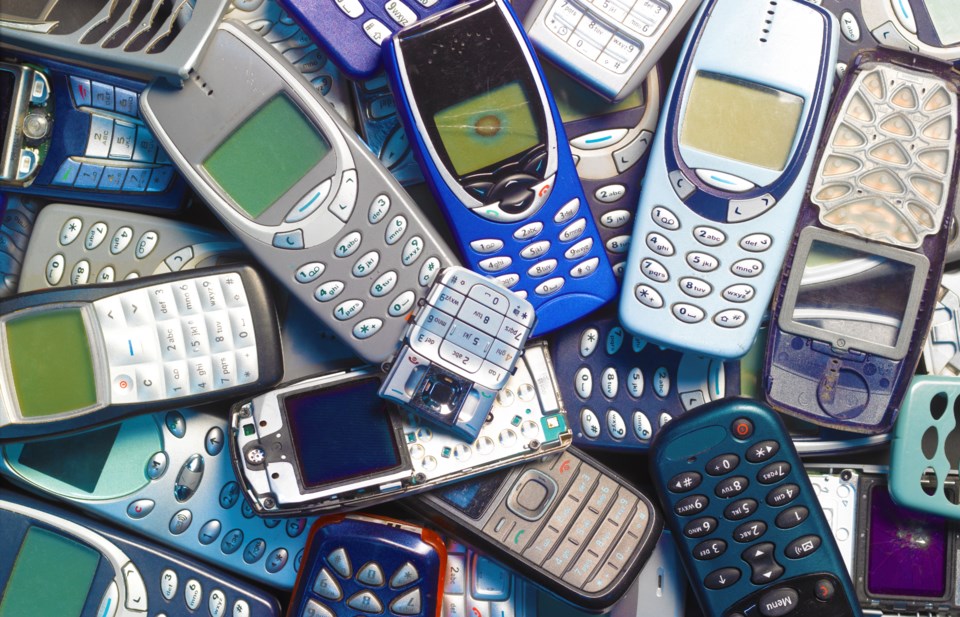There is a growing movement among Gen Z to do away with smartphones and revert back to “less smart” phones like old-school flip and slide phones. Flip phones were popular in the mid-1990s and 2000s, but now seem to be making a comeback among younger people.
While this may seem like a counter-intuitive trend in our technology-reliant society, a Reddit forum dedicated to “dumb phones” is steadily gaining in popularity. According to a CNBC new report, flip phones sales are on the rise in the U.S.
Gen Z’s interest in flip phones is the latest in a series of obsessions young people are having with the aesthetic of the 1990s and 2000s. Y2K fashion has been steadily making a comeback over the past few years and the use of vintage technology, like disposable cameras, is on the rise.
There are a few reasons why, including nostalgia and yearning for an idealized version of the past, doing a “digital detox” and increasing privacy concerns.
The power of nostalgia
Nostalgia is a complex emotion that involves reconnecting with the happy emotions of an idealized past by recalling positive memories.
Over the years, marketers have realized that nostalgia is a powerful way to evoke positive emotions — so much so that nostalgia marketing has become a recognized marketing strategy. It leverages positive memories and feelings associated with the past to create an emotional connection with consumers.
A wealth of research shows that nostalgia can result in consumers being willing to pay more, enhance brand ties, increased purchase intention and increased digital brand engagement.
Nostalgia may be a driving factor behind people purchasing flip phones because they evoke memories of a previous era in mobile communication.
But nostalgia marketing doesn’t just target the younger generation — it’s also a powerful tool for advertising to those who grew up using older mobile devices. Nokia is an example of a company that understands this well.
A YouTube advertisement for Nokia’s 2720 V Flip shows how brands can use nostalgia marketing to appeal to customers and drive product sales.
When older generations speak about objects from the past, they usually hearken back to “the golden era” or “golden time.” The comment section of the Nokia video showcases this kind of thinking.
One comment reads: “My first phone was a Nokia 2760! It was also a flip phone. This brings back good memories.” Another says: “I am definitely getting this just for good old memories. When life was easy.”
Digital detox
Another reason why people might be purchasing flip phones is to do a digital detox and cut down on screen time. A digital detox refers to a period of time when a person refrains from using their electronic devices, like smartphones, to focus on social connections in the physical world and reduce stress.
In 2022, people in the U.S. spent more than 4.5 hours daily on their mobile devices. In Canada, adults self-reported spending about 3.2 hours per day in front of screens in 2022. Children and youth had about three hours of screen time per day in 2016 and 2017.
Excessive smartphone usage can result in a number of harmful side effects, such as sleep disruption. Just over 50 per cent of Canadians check their smartphones before they go to sleep.
The blue-light emitted from smartphones may suppress melatonin production, making it harder to sleep and causing physiological issues including reduced glucose tolerance, increased blood pressure and increased inflammatory markers.
The increased level of digital connectivity and the pressure to respond instantly, especially in a post-pandemic world where many people work remotely, can lead to increased levels of anxiety and stress. Being constantly online can also lead to reduced social connectivity and can negatively impact personal relationships and social skills.
The constant digital noise and multi-tasking nature of smartphones and apps like TikTok can lead to decreased attention spans. From my personal observations in the classroom, I’ve noticed students find it difficult to concentrate for prolonged periods of time.
A condition known as text neck can also occur when a person spends extended periods of time looking down at an electronic device. The repetitive strain of holding the head forward and down can cause discomfort and pain in the neck.
As people become more aware of the potential side effects of excessive screen time and constant digital connectivity, some are choosing to digitally detox. Flip phones are a way people can limit their exposure to digital noise and build a healthier relationship with technology.
Privacy concerns
Smartphones have a long list of advanced features such as cameras, GPS and tons of mobile applications — all of which can store and access a significant list of personal data.
In some cases, personal data can be used for targeted advertisements, but in worst cases that information can be leaked as part of a data breach. More and more people are growing concerned with how their data is being collected, shared and used by companies and online platforms.
It’s natural to feel worried about the potential misuse of our personal information. That’s why some people are taking matters into their own hands and seeking out creative ways to limit the amount of data being collected about them.
Old-fashioned flip phones generally have fewer features that collect and store personal data compared to smartphones. That can make them a more attractive option for people concerned with privacy, data breaches or surveillance.
But this trend doesn’t mean smartphones are going out of style. There are still millions of smartphones being shipped worldwide every year. The trend may result in users opting to own both a smartphone and a flip phone, allowing users to digitally detox and reduce screen time without sacrificing the benefits of social media.
![]()
Omar H. Fares does not work for, consult, own shares in or receive funding from any company or organisation that would benefit from this article, and has disclosed no relevant affiliations beyond their academic appointment.



